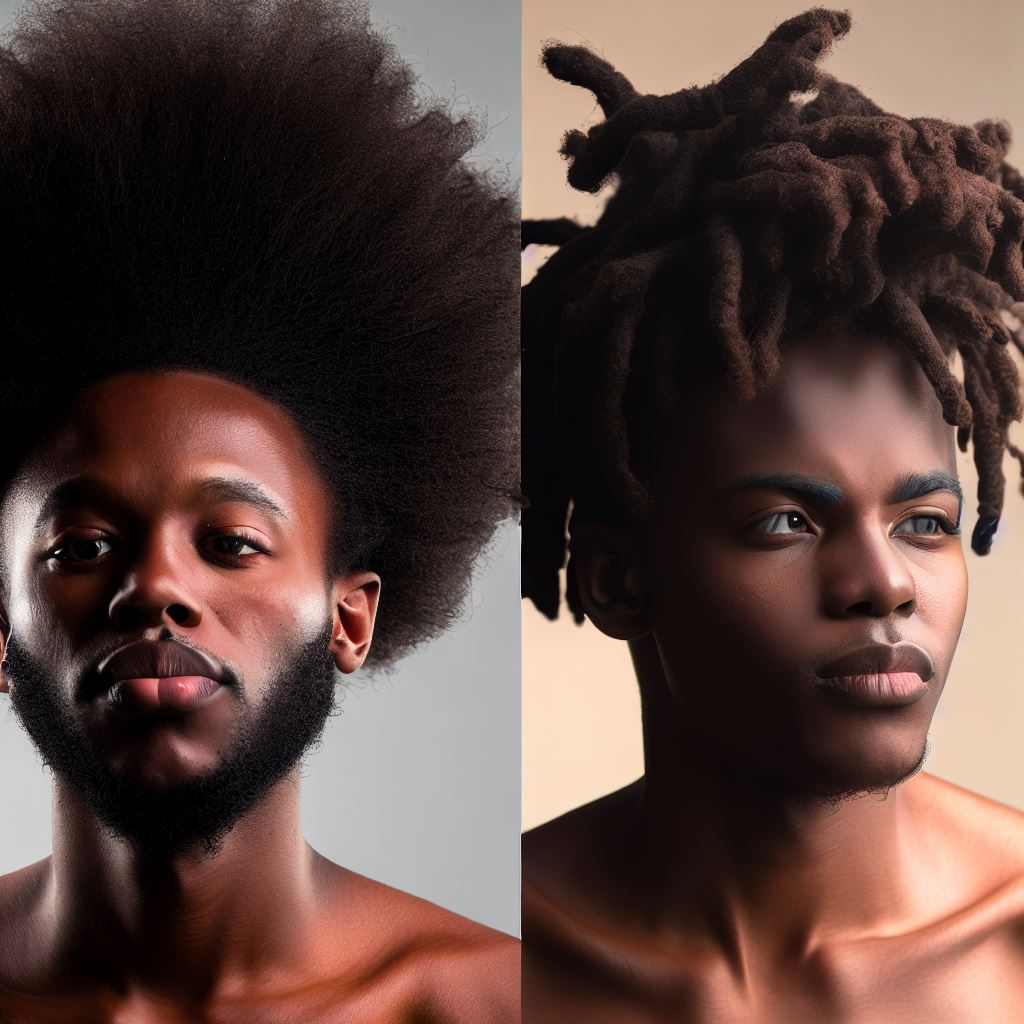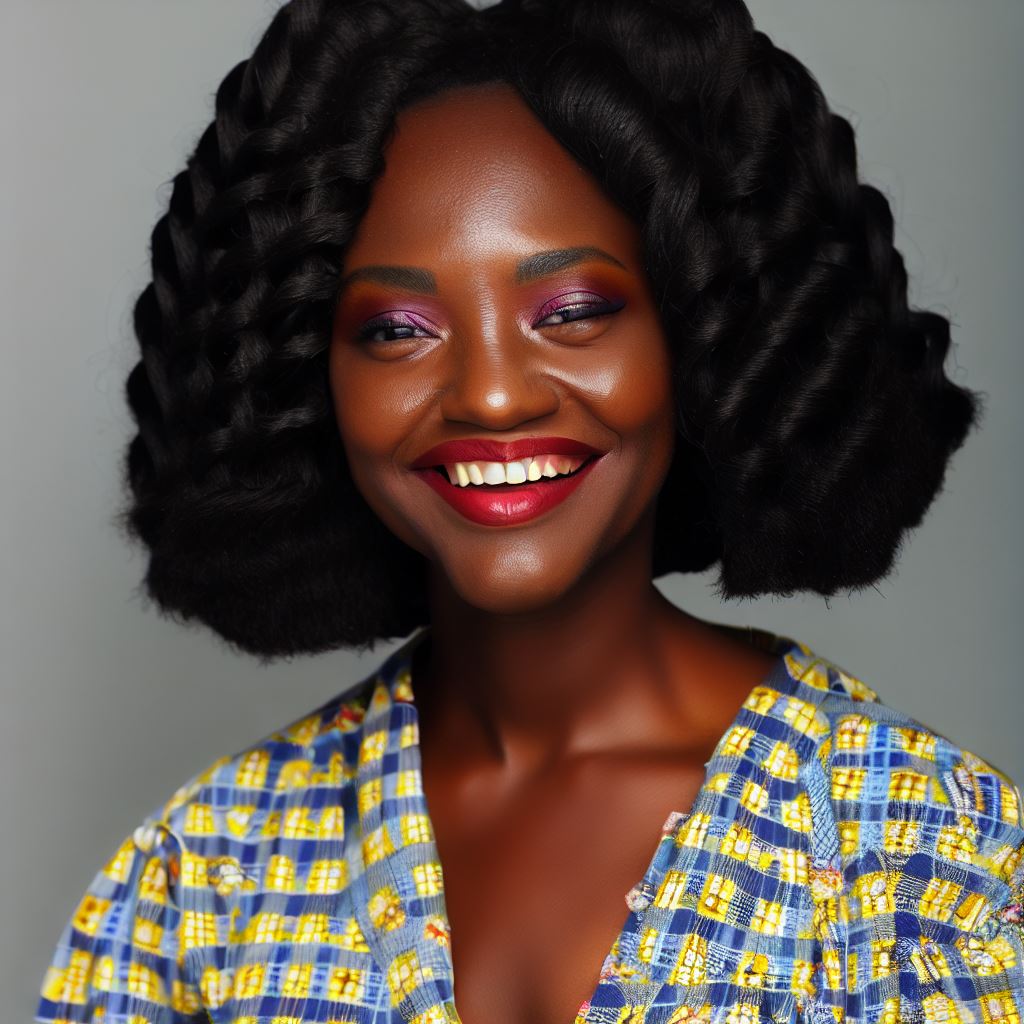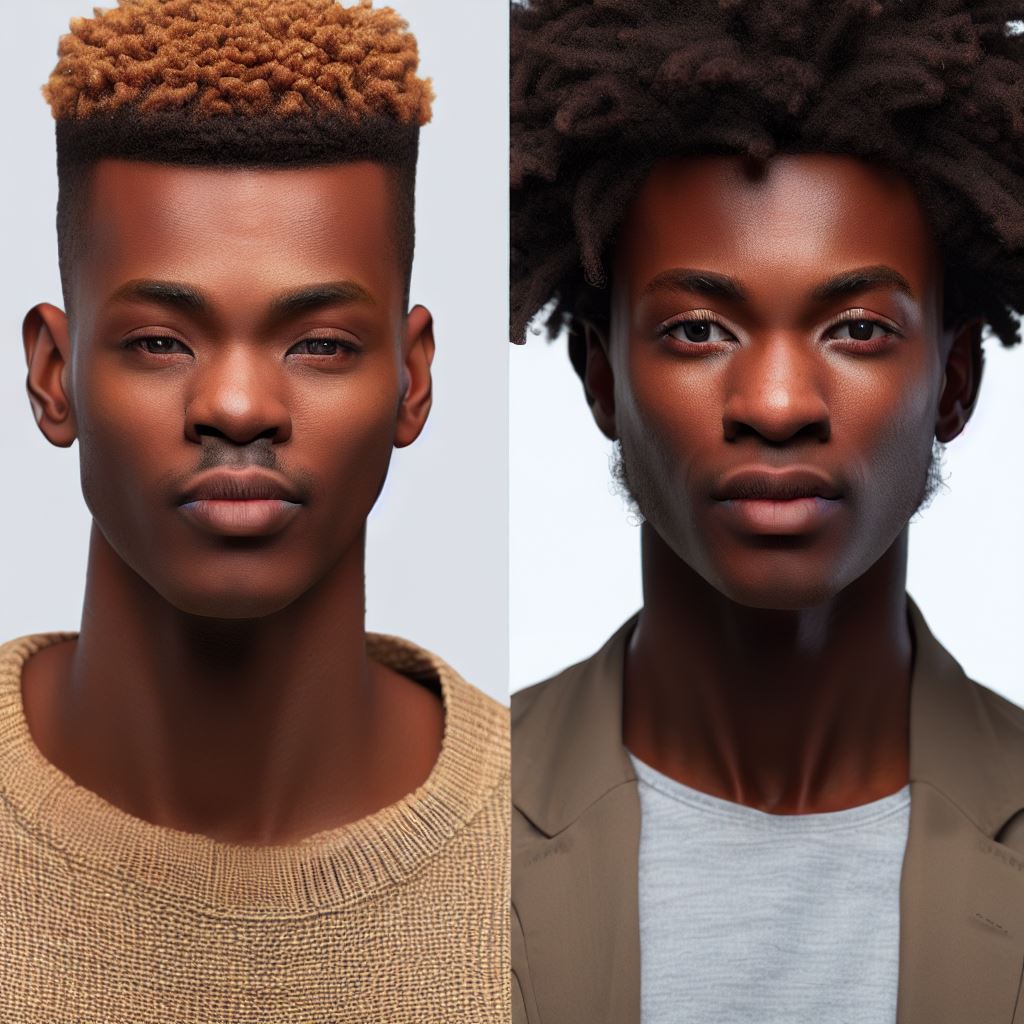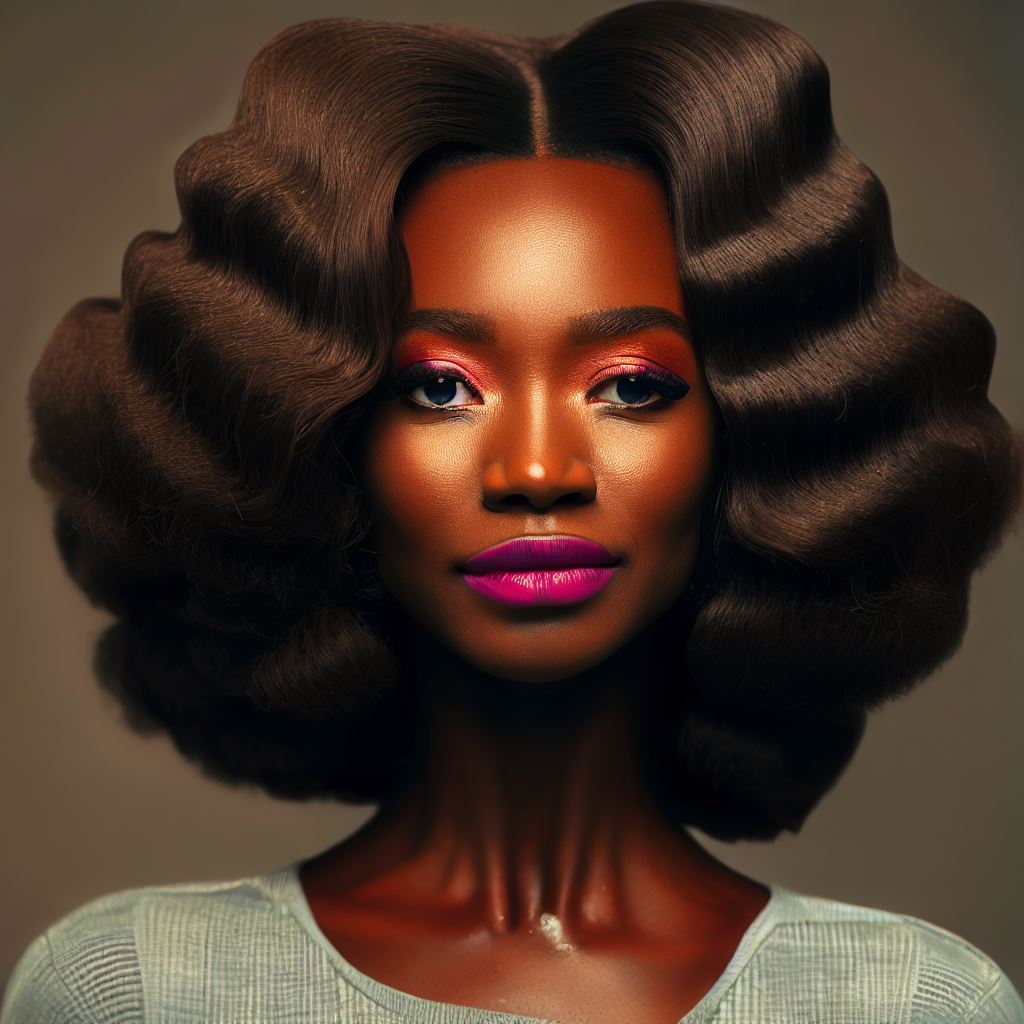Introduction
Let’s explore exploring Nigeria’s film industry through hair styling.
Nigeria’s film industry, also known as Nollywood, is the second largest in the world.
Hair styling plays a crucial role in Nigerian films, representing cultural and societal aspects.
This blog post aims to delve into the importance of hair styling in Nigeria’s film industry.
Nigeria’s film industry, Nollywood, produces thousands of films annually, surpassing Hollywood in terms of quantity.
It has gained global recognition for its unique storytelling and talented actors.
Hair styling is a vital element in Nigerian films, as it reflects the characters’ identities, cultural backgrounds, and social status.
It adds authenticity and visual appeal to the storytelling process, enhancing the overall cinematic experience.
This blog post will explore the significance of hair styling in Nigeria’s film industry.
Hair styling in Nigerian films often represents traditional and contemporary fashion trends, social hierarchy, and societal norms.
It serves as a visual language, conveying messages about characters’ personalities, social roles, and storylines.
Furthermore, hair styling in Nigerian films can highlight cultural diversity and promote ethnic pride.
Different hairstyles reflect various tribes, fostering a sense of inclusivity and showcasing Nigeria’s rich cultural heritage.
Moreover, hair styling in Nollywood contributes to the economic growth of the country.
It provides lucrative opportunities for hairstylists, makeup artists, and costume designers, fostering job creation and skill development.
In short, hair styling plays a crucial role in Nigeria’s film industry, serving as a visual language to represent cultural identity, societal norms, and fashion trends.
It enhances storytelling, adds authenticity, and contributes to the economic growth of the country.
Stay tuned for the next section, where we will delve into the evolution of hair styling techniques in Nigerian films.
Historical Background of Nigerian Films
Emergence of the Nigerian film industry in the 1960s
- In the 1960s, Nigeria gained independence and experienced a surge in cultural expression.
- This period also saw the emergence of the Nigerian film industry, also known as Nollywood.
- Nigerian filmmakers began creating movies that reflected their own cultural heritage and stories.
- The first Nigerian feature film, “Palaver,” was released in 1926, but it was in the 1960s that the industry truly started to take shape.
Early challenges faced by the industry
- During its early years, the Nigerian film industry faced several challenges and limitations.
- The lack of funding and proper equipment hindered the production quality of early Nigerian films.
- Distribution was also a significant challenge, as there were limited cinemas and movie theaters in the country.
- Despite these challenges, Nigerian filmmakers persevered and continued to produce films independently.
Growth and recognition of Nollywood
- Over time, the Nigerian film industry experienced significant growth and gained international recognition.
- With low-budget productions and limited resources, Nollywood became the third-largest film industry in the world.
- Nollywood films, known for their unique storytelling and relatable characters, captured the attention of audiences globally.
- The industry’s growth can be attributed to advancements in technology and the rise of digital distribution platforms.
- Nigerian filmmakers embraced these technological advancements, allowing for increased production quality and wider reach.
- Nollywood movies began to address social issues, such as corruption, poverty, and gender inequality, garnering critical acclaim.
- The success of Nollywood paved the way for more African countries to develop their own film industries.
- Today, Nigerian films are celebrated for their cultural impact and contribution to the global film industry.
In fact, the historical background of Nigerian films showcases the industry’s resilience and growth.
Despite early challenges, Nigerian filmmakers persevered and created a unique cinematic movement.
From its emergence in the 1960s to gaining international recognition, Nollywood has become a cultural phenomenon, addressing societal issues and captivating audiences worldwide.
By embracing technological advancements, the Nigerian film industry continues to thrive and inspire other African countries to develop their own cinematic identities.
Read: Career Paths: From Salon to Film Set in Nigeria
Role of Hair Styling in Nigerian Films
Importance of Hair Styling in Character Development
The role of hair styling in character development cannot be underestimated within the Nigerian film industry.
Nigerian filmmakers understand the power of visual cues in establishing and enhancing the identities of their characters.
By using different hairstyles, filmmakers aim to accurately depict diverse personalities and create relatable characters that resonate with the audience.
1. Different hairstyles to portray diverse personalities
Hairstyles are carefully selected to visually represent the traits and characteristics of each character.
For example, a bold and confident character may be depicted with a striking and unconventional hairstyle, while a reserved and conservative character may have a more traditional and modest style.
The variety of hairstyles helps to make the characters believable and multidimensional.
2. Use of hairstyles to reflect cultural identities
Nigerian films often take pride in showcasing the country’s diverse cultures. In this regard, hairstyles play a crucial role in accurately reflecting cultural identities.
Traditional hairstyles, adorned with intricate patterns or accessories, are used to display the unique heritage and traditions of different tribes and ethnic groups.
This not only adds richness to the storytelling but also promotes cultural awareness and appreciation among viewers.
Enhancing Visual Storytelling through Hairstyles
In addition to character development, hair styling in Nigerian films serves a deeper purpose in enhancing visual storytelling and conveying important messages and themes.
1. Symbolism and meaning behind specific hairstyles
Hairstyles are often chosen with symbolic intent, sending subtle messages to the audience about a character’s journey, status, or role in the narrative.
Whether it’s a protagonist undergoing a transformation, a villain exhibiting power through an elaborate hairstyle, or a symbol of rebellion, these deliberate choices create a visual language that goes beyond words.
2. Evoking emotions and conveying social status through hair
Hairstyles can evoke a range of emotions and effectively depict social status within Nigerian films.
An untidy or disheveled hairstyle may evoke empathy and portray a character’s struggle or vulnerability.
On the other hand, a meticulously styled and glamorous hairstyle can convey wealth, status, and confidence.
These visual cues help the audience connect with the characters on a deeper level and understand their motivations.
In essence, the role of hair styling in Nigerian films goes beyond aesthetics.
It serves as a powerful tool for character development, cultural representation, and visual storytelling.
Whether through the use of diverse hairstyles to portray personalities or the symbolism and meaning behind specific styles, hair plays a crucial role in creating authentic and captivating stories on the Nigerian silver screen.
Read: Challenges and Triumphs: A Film Hair Stylist in Nigeria
Evolution of Hair Styling in Nigerian Films
Transition from traditional to modern hairstyles
Traditional hairstyles were commonly seen in Nigerian films, reflecting cultural practices and beliefs.
Over time, filmmakers began incorporating modern hairstyles, influenced by global trends and contemporary fashion.
The use of modern hairstyles in films signified a shift towards a more cosmopolitan and Westernized society.
Actresses started sporting sleek and straight hair, highlighting the influence of globalization and urbanization.
Modern hairstyles in Nigerian films portray characters as stylish, trendy, and in sync with the youth culture.
Influence of international hair trends in Nigerian films
The Nigerian film industry, known as Nollywood, has embraced the influence of international hair trends.
Hollywood and other international film industries have played a significant role in shaping Nigerian hair styling.
Actresses in Nigerian films now experiment with a variety of hairstyles seen in global cinema.
The popularity of braids, weaves, and extensions in Nigerian films reflects the global fascination with these trends.
International hair trends have brought diversity and creativity, enhancing the visual appeal of Nigerian films.
Changing perceptions of beauty and femininity through hairstyles
Hairstyles in Nigerian films have contributed to changing perceptions of beauty and femininity.
Traditional hairstyles were often associated with cultural norms and represented a traditional standard of beauty.
Modern hairstyles challenge these traditional standards, promoting diversity and individual expression.
Actresses with natural hair or unconventional styles are now celebrated for breaking societal beauty norms.
Hairstyles in Nigerian films reflect a more inclusive and empowering definition of beauty and femininity.
In general, the evolution of hair styling in Nigerian films has undergone a significant transformation.
The transition from traditional to modern hairstyles, influenced by international trends, has changed perceptions of beauty and femininity.
These changes have brought diversity, creativity, and a sense of empowerment to the Nigerian film industry.
Through hairstyles, filmmakers have captured the spirit of a changing society, embracing both cultural heritage and global influences.
As the industry continues to evolve, it will be interesting to see how hairstyles in Nigerian films reflect the ever-changing dynamics of society and beauty standards.
Read: Understanding the Business of Film Hair Styling in Nigeria
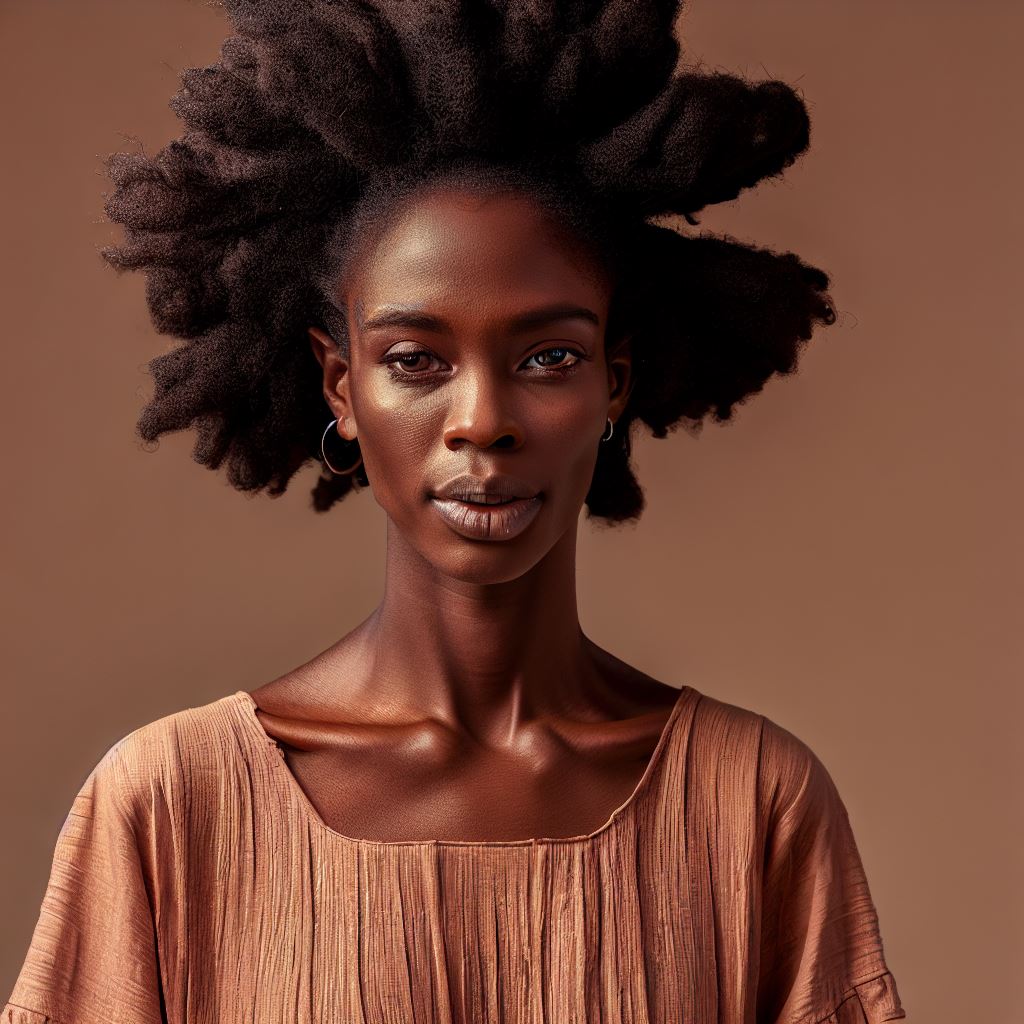
Influence of Nigerian Films on Hair Styling Trends
Popularity of Nigerian films across Africa and the diaspora
Nigerian films have gained immense popularity not only in Nigeria but also across Africa.
These films have also made a mark in the diaspora, reaching Nigerian communities around the world.
The widespread viewership of Nigerian films has helped showcase Nigerian culture and fashion.
With millions of people watching these films, the influence on hair styling trends is significant.
Nigerian hairstyles portrayed in films have become a source of inspiration for many viewers.
African communities, both in Africa and abroad, have embraced these film-inspired hairstyles.
Impact on hair and beauty industries
Nigerian films have played a crucial role in transforming the hair and beauty industries in Nigeria.
Increased demand for Nigerian film-inspired hairstyles has led to the growth of specialized salons.
These salons cater to the specific needs of clients wanting to recreate film characters’ hairstyles.
Professional hairstylists have gained recognition and expanded their businesses due to this trend.
Nigerian films have also created opportunities for local artisans to design and sell hair accessories.
The film industry has become a significant contributor to the economy of the hair and beauty sector.
Examples of Nigerian film-inspired hairstyles trending globally
The iconic “Ghana weaving” hairstyle, popularized by Nigerian films, is now a global trend.
Other popular Nigerian film-inspired hairstyles include braids, twists, and cornrows.
The movie “Osuofia in London” showcased the “punk cut” style, gaining popularity among young viewers.
“The Wedding Party” introduced the trend of elaborate updos for traditional Nigerian weddings.
Actress Genevieve Nnaji’s hairstyle in the film “Lionheart” sparked a craze for short, natural hair.
The film “Half of a Yellow Sun” featured 1960s retro hairstyles, influencing fashion trends globally.
The influence of Nigerian films on hair styling trends goes beyond borders and cultures.
These films have become a powerful platform for showcasing Nigerian hairstyles, attracting a diverse global audience.
As Nigerian films continue to captivate viewers across the continent and beyond, the impact on hair and beauty industries remains undeniable.
From specialized salons offering film-inspired hairstyles to local artisans creating unique hair accessories, the economic growth brought by these films is substantial.
Moreover, Nigerian film-inspired hairstyles have transcended boundaries, becoming global trends embraced by people of various backgrounds.
Publish Your Professional Profile, Business or Brand
Showcase your expertise, gain trust, and boost visibility instantly on Professions.ng.
Publish NowWhether it’s the iconic “Ghana weaving” or the stylish braids and twists, these hairstyles showcase the beauty and versatility of African hair.
As new films emerge, bringing forth fresh styles and inspiration, the influence on hair styling trends will undoubtedly continue to flourish globally.
Read: Training Programs for Aspiring Film Hair Stylists in Nigeria
Challenges and Innovations in Nigerian Film Hair Styling
When it comes to hair styling in the Nigerian film industry, there are several challenges and innovative solutions that have emerged over the years.
Limited resources and budget constraints
The first major challenge faced by Nigerian film hair stylists is the limited availability of resources and strict budget constraints.
In many cases, productions have to work with minimal funds allocated for hair styling.
Despite these challenges, hair stylists in Nigeria have managed to create stunning looks with the limited resources they have.
They have become masters of improvisation, using everyday items to achieve desired styles.
For example, when a certain hairstyle requires hair extensions but there is no budget for it, stylists have used materials like craft yarn, ribbons, or even pieces of fabric to create the desired effect.
Adoption of creative solutions and improvisation
Innovation and creativity are crucial in overcoming the challenges faced by Nigerian film hair stylists.
They constantly come up with new ways to achieve unique looks on screen.
One innovative solution is the use of wig-making techniques.
Nigerian hair stylists have become experts at making customized wigs that can be used repeatedly in different productions.
This approach saves time and money, as it eliminates the need to create elaborate hairstyles from scratch for each project.
Moreover, by using wigs, stylists can completely transform an actor’s appearance within minutes, enhancing the character’s personality and contributing to the overall storytelling.
Introduction of specialized hairstylists in the Nigerian film industry
To tackle the challenges of limited resources and achieve higher quality results, Nigerian film productions have started to hire specialized hairstylists.
These skilled professionals bring in their expertise and knowledge of the latest hair trends and techniques from around the world.
They work closely with the creative team to develop unique looks for characters that align with the director’s vision.
The introduction of specialized hairstylists has elevated the standard of Nigerian film hair styling, making it more competitive on a global scale.
It has opened doors for collaborations with international productions, leading to cultural exchanges and the sharing of best practices.
The Nigerian film industry has faced various challenges when it comes to hair styling, including limited resources and budget constraints.
However, through creativity, innovation, and the introduction of specialized hairstylists, these challenges have been overcome.
Nigerian hair stylists have proven their ability to create stunning looks by improvising with everyday items, adopting wig-making techniques, and collaborating with international experts.
Their dedication to their craft has not only improved the quality of Nigerian films but has also put the Nigerian film industry on the global map.
Conclusion
Throughout this blog section, we have delved into the fascinating world of hair styling in Nigeria’s film industry.
We have seen how hairstyles play a crucial role in bringing characters to life and enhancing storytelling.
Hair styling is not just about aesthetics but also about expressing cultural identities and reflecting social statuses.
It adds depth and realism to the narratives presented on the big screen.
Nigerian films have been instrumental in shaping hair styling trends within the country and beyond.
The elaborate and innovative hairstyles showcased in these movies have become iconic and have influenced fashion choices in Nigerian society.
They have also gained international recognition, putting Nigeria on the map as a creative hub for hair styling.
Looking ahead, it is clear that the future of hair styling in Nigerian films is promising.
As the film industry continues to grow and gain global attention, so will the art of hair styling.
We can expect to see more creative and diverse hairstyles, pushing the boundaries of what is possible.
Hair will continue to serve as a powerful tool for character development and storytelling, ensuring that Nigerian films remain captivating and authentic.
In summary, hair styling in Nigeria’s film industry is not merely an afterthought but an integral part of the filmmaking process.
It contributes to the overall visual language and helps create memorable characters.
As Nigerian films continue to make waves, the influence of hair styling will only grow stronger, cementing its position as an essential element of storytelling in this dynamic industry.

